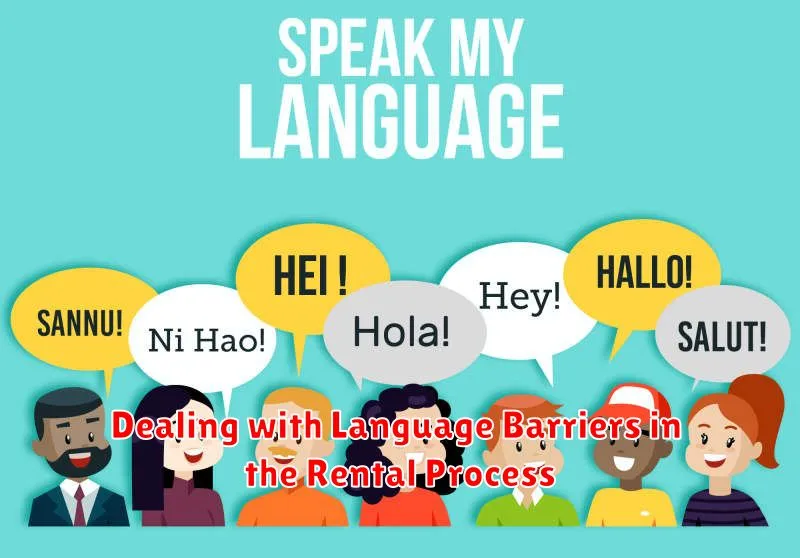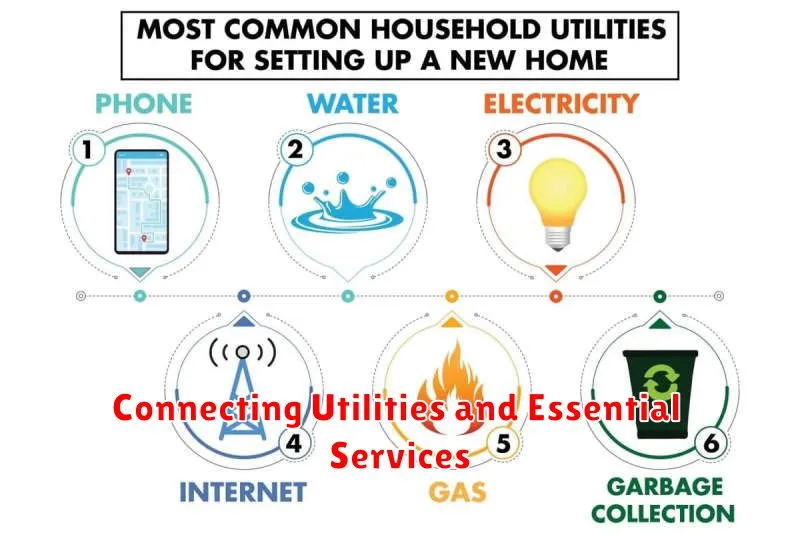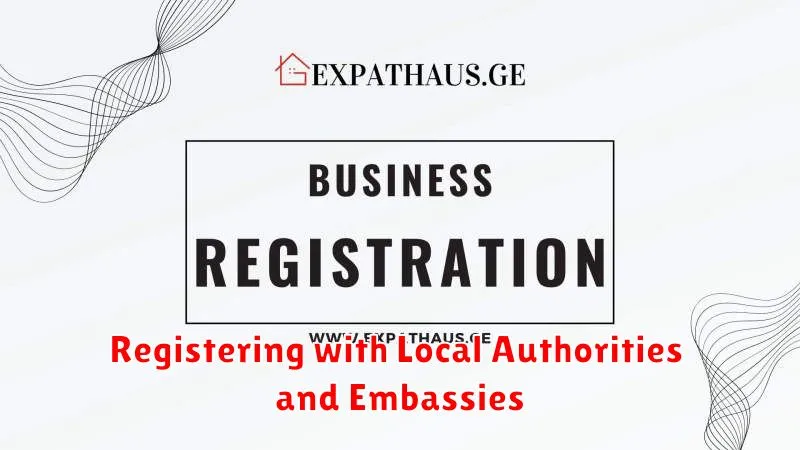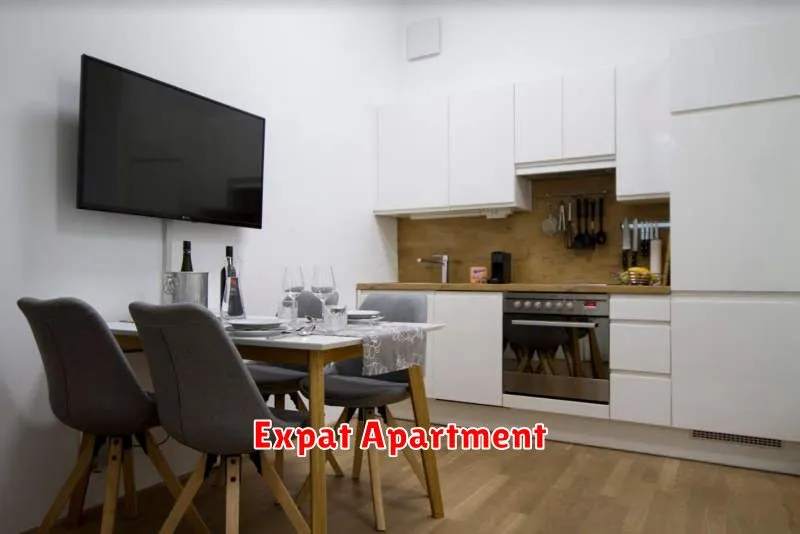Moving to a new country can be exciting, but it can also be overwhelming. One of the biggest challenges expats and foreigners face is finding an apartment. With so many factors to consider, from location and budget to amenities and safety, it can feel like an impossible task. But don’t worry, we’re here to help! This article provides some helpful tips for finding the perfect apartment for you, making your transition to a new country as smooth as possible. From understanding local laws to negotiating lease agreements, we’ll cover everything you need to know to secure a comfortable and convenient living space.
Navigating the Rental Market in a New Country
Moving to a new country can be an exciting and daunting experience, especially when it comes to finding a place to live. Navigating the rental market in an unfamiliar territory can be overwhelming, with different customs, legalities, and communication barriers to consider. But with some research and preparation, you can find a suitable rental property that meets your needs and budget.
One of the first steps is to understand the rental market in your new location. Explore online listings, real estate websites, and local newspapers to get a sense of rental prices, available properties, and popular neighborhoods. It’s also helpful to connect with local expats or foreigners who have experience with the rental process. They can provide valuable insights and recommendations.
Consider your budget and lifestyle when making your decision. Decide on the type of property you want, such as an apartment, house, or shared accommodation. Factor in the cost of utilities, internet, and other expenses. It’s essential to be realistic about your financial capabilities and set a budget you can comfortably afford.
Research the legal aspects of renting in your new country. Familiarize yourself with the landlord-tenant laws, rental agreements, and deposit regulations. It’s advisable to consult with a local lawyer or real estate agent for legal guidance. This will ensure you understand your rights and responsibilities as a tenant.
When contacting landlords or agents, be prepared to provide necessary documentation, including proof of identity, income, and employment. It’s also a good idea to have a list of questions ready to ask about the property, neighborhood, and any other relevant details. Be clear about your expectations and communicate your needs effectively.
Finding an apartment in a new country can be challenging but rewarding. By following these tips, you can navigate the rental market efficiently and find a comfortable and suitable home that fits your lifestyle and budget.
Understanding Local Lease Agreements and Regulations
One of the most crucial aspects of renting an apartment as an expat or foreigner is understanding the local lease agreements and regulations. These documents and laws can vary significantly from country to country and even from city to city. Carefully reviewing and understanding these aspects will ensure a smooth and legally sound rental experience.
Lease Agreements are the contracts that outline the terms of your tenancy. They typically cover details such as rent amount, payment schedule, the length of the lease, responsibilities of both the landlord and tenant, and any penalties for breaking the agreement. It is essential to read the lease thoroughly and understand all the clauses before signing. You should also consider seeking legal advice if you have any questions or concerns about the terms.
Local Regulations can also impact your tenancy. For example, some countries may have laws governing the amount of notice a landlord must provide before entering your apartment or the circumstances under which they can terminate your lease. You should familiarize yourself with these regulations to ensure that your rights are protected.
Legal Assistance: It’s advisable to seek legal assistance from a local attorney specializing in real estate law. They can help you navigate the complexities of local laws and regulations and ensure that your lease agreement is fair and protects your interests.
Understanding local lease agreements and regulations is critical for a successful and hassle-free rental experience. Take the time to carefully review and understand these documents, and seek legal advice if needed. This will help you avoid potential conflicts and ensure a smooth tenancy.
Finding Reputable Real Estate Agents for Expats
Finding a reliable real estate agent is crucial for expats looking to rent an apartment. They can provide valuable insights and assistance throughout the process. Here are some tips for finding a reputable real estate agent:
1. Network and Get Recommendations: Ask other expats, friends, or colleagues for recommendations. Their firsthand experiences can guide you toward trustworthy agents.
2. Check Online Reviews and Testimonials: Explore online platforms like Google Reviews, Facebook, or specialized expat forums to see what others say about specific agents.
3. Look for Professional Affiliations: Check if the agent is a member of reputable real estate organizations like the National Association of Realtors (NAR) or the Real Estate Institute of Australia (REIA).
4. Seek Expertise in Expat Housing: Look for agents who specialize in working with expats. They understand the unique challenges and requirements of international renters.
5. Interview Multiple Agents: Meet with a few agents to discuss your needs and get a sense of their approach. Ask about their experience, fees, and communication style.
6. Get Everything in Writing: Ensure all agreements, fees, and responsibilities are clearly outlined in writing.
Securing a Visa and Necessary Documentation for Renting
Before you start looking for an apartment, it’s important to make sure you have the necessary documentation to secure a visa and the right to rent in your new country. The specific requirements will vary depending on your nationality and the country you’re moving to. It is advisable to contact the relevant embassy or consulate for the most accurate and up-to-date information.
Here are some general things to keep in mind:
- Visa Requirements: Ensure you understand the visa requirements for your chosen country, as well as the application process and necessary supporting documents.
- Work Permit: If you plan to work in the country, you may need to obtain a work permit in addition to your visa.
- Passport: Your passport must be valid for at least six months beyond your intended stay, and may need to have enough blank pages for entry and exit stamps.
- Proof of Funds: You may be required to provide proof of sufficient funds to support yourself during your stay. This can be in the form of bank statements, financial sponsorship documents, or other financial records.
- Rental Agreement: You may need to provide a rental agreement or proof of residence to secure your visa or work permit.
It’s a good idea to gather all of the necessary documentation well in advance of your move to avoid any delays or complications. Once you have secured your visa and all necessary documentation, you can start looking for an apartment with peace of mind.
Setting Up a Bank Account and Managing Finances Abroad
Once you’ve found your dream apartment, the next step is to get your finances in order. Setting up a bank account in your new country is essential for paying rent, utilities, and other expenses. Research different banks and compare their fees, interest rates, and services before making a decision. Consider opening a multi-currency account to avoid hefty currency conversion fees.
Managing your finances abroad requires some planning. Create a budget and track your income and expenses. Set up automatic payments for bills to avoid late fees. Learn about local taxes and regulations to ensure you’re compliant. You can also consider using a budgeting app to help you manage your finances.
Research options for international money transfers, as you’ll likely need to transfer funds from your home country. Compare exchange rates and transfer fees to find the best option for your needs. Be mindful of potential fees associated with using ATMs or debit cards abroad. Research and compare fees for different banks and payment methods.
It’s always wise to have an emergency fund in your new country. This will provide a safety net in case of unexpected expenses or job loss. You can also consider investing in a local bank account or a high-yield savings account to grow your money. Remember to stay organized and monitor your finances regularly to ensure you’re on track.
Researching Neighborhoods Suitable for Expats
Once you’ve decided on a city, it’s time to get specific about where you want to live. Researching neighborhoods is crucial for expats, as it ensures you find a place that aligns with your lifestyle, budget, and needs. Consider these factors:
Safety and Security: Look for neighborhoods with low crime rates and reliable security measures. Check online resources, talk to locals, and consider areas with police presence or gated communities.
Accessibility: Think about your daily commute to work, schools, and other essential places. Proximity to public transportation, like buses or metros, is a significant factor for easy and affordable travel.
Amenities and Lifestyle: Determine your preferences: Do you want a vibrant nightlife or a quiet, family-friendly neighborhood? Consider factors like parks, restaurants, shopping centers, and cultural attractions.
Cost of Living: Research the average rent prices, grocery costs, utilities, and transportation expenses in different neighborhoods. Compare this to your budget and consider areas that offer a good value for your money.
Community and Expat Presence: For many expats, feeling a sense of community is vital. Look for neighborhoods with a strong expat presence or international groups, which can ease the transition and provide a support network.
Online Resources: Utilize resources like expat forums, online city guides, and neighborhood reviews. These platforms offer real-life experiences and valuable insights from other expats.
Local Contacts: If possible, connect with expats already living in your chosen city. They can offer firsthand information about neighborhoods and provide valuable insights about living there.
Visit in Person: If feasible, plan a visit to your chosen city and explore different neighborhoods firsthand. This hands-on experience will provide a better understanding of the local vibe and help you make an informed decision.
Considering Cultural Differences and Local Customs
When searching for an apartment in a foreign country, it’s crucial to consider local customs and cultural differences. Understanding these nuances can help you avoid misunderstandings, navigate the rental process more smoothly, and find a place that truly suits your needs.
For example, some cultures may place a high value on personal relationships when renting an apartment. Landlords might prefer to rent to tenants they know or have been recommended by someone they trust. In these cases, building relationships with local real estate agents or landlords can be beneficial. It’s also wise to learn about any local customs regarding deposits, rent payment schedules, or even the types of furniture that are typically included in a rental agreement.
Additionally, it’s important to be aware of cultural norms regarding noise levels, guest policies, and even the use of specific amenities. What might be considered acceptable in your home country may be seen as disrespectful or inappropriate in your new environment. Taking the time to learn about local customs can help you avoid any cultural clashes or misunderstandings with your landlord or neighbors.
Researching local customs and traditions related to renting can be incredibly helpful. It can prevent potential issues, build stronger relationships with landlords and neighbors, and ensure that your living experience is more positive and comfortable.
Dealing with Language Barriers in the Rental Process

Navigating the rental process in a foreign country can be challenging, especially when language barriers come into play. However, with a little preparation and understanding, you can overcome these hurdles and find the perfect apartment.
Utilize online resources: Many rental websites and apps offer multilingual support or translation features. Take advantage of these tools to search for apartments and understand listings.
Prepare key phrases: Create a list of essential phrases in the local language related to the rental process, such as “hello,” “thank you,” “I’m looking for an apartment,” “what is the rent,” and “can I see the apartment.”
Seek assistance: If you’re struggling to communicate, don’t be afraid to ask for help. Consider asking a friend, family member, or local acquaintance who speaks the language to assist with your interactions with landlords or real estate agents.
Use a translator: Apps like Google Translate or other translation tools can be helpful for understanding documents and having conversations. However, be aware that they may not always translate nuances or colloquialisms accurately.
Be patient and understanding: Remember that communication breakdowns are common, and both you and the other party may be trying to understand each other. Stay calm and polite, and be willing to clarify anything you’re unsure about.
Furnishing Your Apartment in a Foreign Country
Furnishing your apartment in a foreign country can seem daunting, but with a little planning and research, you can create a comfortable and stylish space that feels like home. Here are some tips to help you navigate the process:
Consider the local style and availability: Before you start shopping, take some time to observe the local aesthetic and explore what furniture and decor are readily available. You may find that certain styles or materials are more common or affordable in your new country.
Shop around for the best deals: Don’t limit yourself to the first furniture store you find. Compare prices and options at different retailers, both online and offline. Look for second-hand furniture stores or online marketplaces for budget-friendly options. You might find some hidden gems!
Think about your needs and lifestyle: Consider your daily routine and activities when choosing furniture. Do you need a large dining table for entertaining guests, or a comfortable workspace for remote work? Make a list of your essential needs and prioritize accordingly.
Embrace the local culture: Integrating a few local elements into your décor can help you feel more connected to your new home. This could be anything from a traditional rug to a unique piece of artwork.
Don’t be afraid to get creative: With a little creativity, you can make your apartment feel like your own without spending a fortune. DIY projects, repurposing old furniture, and adding personal touches can create a unique and welcoming space.
Connecting Utilities and Essential Services

Once you’ve secured your apartment, the next step is to connect essential utilities like electricity, water, gas, and internet. This may seem daunting, but it’s a crucial step to make your apartment habitable. The process might vary depending on the country and city you are in.
Before you move in, contact the utility providers directly and inquire about the necessary paperwork and procedures. You might need to provide your passport, visa, and rental agreement. It’s a good idea to understand the billing cycle and payment options. Some companies accept online payments, while others require you to visit their office or pay through a bank transfer.
Additionally, consider if you need internet and phone services. Several providers offer different packages and deals, so research and compare them to find the best fit for your needs. Explore the possibility of getting bundled deals that combine internet, cable TV, and phone services for a more affordable option.
Make sure to keep all your utility bills and contact information handy for future reference. Contacting your utility provider directly is also a good idea if you encounter any issues.
Understanding Transportation Options for Expats
Navigating a new city as an expat can be daunting, and transportation is often one of the first things you’ll need to figure out. Before you even start looking at apartments, it’s a good idea to understand the various transportation options available in your new city and how they align with your lifestyle and budget.
Here are some of the most common options:
- Public Transportation: This can include buses, trains, subways, and trams. It’s often the most affordable option, especially if you’ll be using it frequently. Research the routes, schedules, and fares to see if it’s suitable for your needs.
- Taxis and Ride-Sharing Services: These can be convenient but can be more expensive. Check for app-based taxi or ride-sharing services that are popular in your new city.
- Cycling: Cycling is a great way to explore your surroundings and get some exercise. However, consider if the city is bike-friendly, and whether you feel comfortable navigating traffic.
- Car Ownership: This can be a good option if you plan to travel often outside the city or need to transport large items. However, car ownership comes with costs like insurance, maintenance, and parking.
- Walking: If your new apartment is in a walkable area, walking can be a healthy and convenient option.
When choosing your apartment, consider its proximity to transportation hubs and whether the transportation options available meet your needs. This can help you avoid long commutes and save both time and money.
Finding Healthcare and Insurance Coverage Abroad
One of the most important things to consider when moving abroad is healthcare and insurance coverage. Depending on your country of origin, you may need to take steps to ensure you have access to medical care while living abroad.
For instance, if you’re from a country with universal healthcare, you may not be able to access it when you’re living overseas. In this case, you’ll need to look into private health insurance options. Even if your home country does provide healthcare, it may not cover you outside of your home country.
When researching health insurance options, it’s essential to consider your individual needs and circumstances. If you have any pre-existing conditions, you may need to find a plan that specifically covers those conditions. You should also consider your budget and the level of coverage you require.
In addition to health insurance, you may also want to consider other types of insurance, such as travel insurance and liability insurance. Travel insurance can help cover the costs of unexpected medical emergencies, trip cancellations, and lost luggage. Liability insurance can protect you from financial losses if you are sued for causing damage or injury to others.
It’s always best to research and compare different insurance plans before making a decision. You can speak to a qualified insurance broker or agent to get advice on the best options for you. Once you have a solid plan in place, you can rest assured that you’re covered in case of any unexpected medical expenses or other unforeseen events.
Building a Support Network in Your New City
Moving to a new city can be exciting, but it can also be daunting. One of the most important things you can do to make your transition smoother is to build a support network. This will help you feel less alone and more connected to your new community. Here are some tips for building a support network in your new city:
Join groups and organizations: There are many groups and organizations in every city that cater to different interests. Join a group that aligns with your hobbies, passions, or career goals. This is a great way to meet people who share your interests.
Attend local events: Many cities host free events, such as concerts, festivals, and farmers markets. These events are a great way to meet people from different walks of life.
Volunteer: Volunteering is a great way to meet people while giving back to your community.
Use social media: There are many social media groups and forums for expats and foreigners in your new city. These groups can be a great resource for finding information, connecting with other people, and attending events.
Be open to meeting new people: Don’t be afraid to strike up conversations with people you meet, whether it’s at the grocery store, the gym, or the park. You never know where you’ll find your next friend.
Building a support network in your new city will take time and effort. Be patient, be persistent, and don’t be afraid to put yourself out there. You’ll soon find that your new city is full of friendly faces waiting to welcome you.
Registering with Local Authorities and Embassies

Once you’ve secured your apartment, it’s crucial to register with the local authorities and your embassy. This is essential for your safety and legal standing in your new country.
Start by registering with the local police or immigration office. This usually involves providing your passport, visa, and rental agreement. You’ll also need to notify them of any changes to your address. This is important for receiving mail, registering for utilities, and accessing emergency services.
Next, register with your embassy or consulate. This ensures they can contact you in case of an emergency or political instability. They can also provide assistance with legal and administrative matters.
Don’t delay this step! It’s a vital part of establishing yourself in your new home. By completing these registrations, you’ll be better prepared to handle any unforeseen situations and enjoy a smoother transition into your new life.
Adapting to Your New Life as an Expat

Moving to a new country as an expat is an exciting adventure, but it can also be challenging. One of the biggest adjustments is finding a place to live. The apartment rental process can be intimidating, especially if you’re unfamiliar with the local customs and language.
Before you even start looking, take some time to familiarize yourself with the culture and lifestyle of your new home. What are the typical rental agreements like? What are the local laws regarding tenants’ rights? What are the norms around deposit and rent payments?
Once you have a better understanding of these things, you can start looking for an apartment. Don’t be afraid to ask for help from local friends, colleagues, or even real estate agents. They can provide valuable insights and help you navigate the rental market.
Be prepared for potential culture shock. There may be differences in communication styles, expectations of privacy, and even what constitutes a “good” neighborhood. Embrace these differences as opportunities for growth and learning, and remember that adaptability is key to a successful expat experience.
Remember, adapting to a new life as an expat is a journey. It takes time to find your footing and feel comfortable in your new surroundings. Be patient with yourself, be open to new experiences, and enjoy the adventure!

